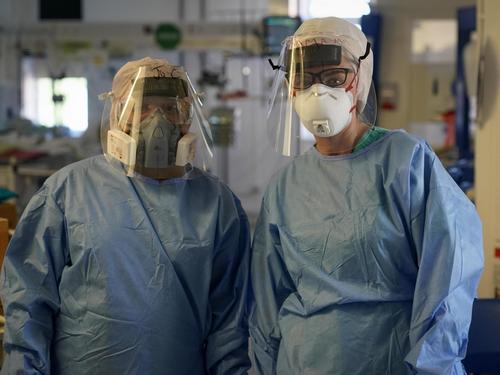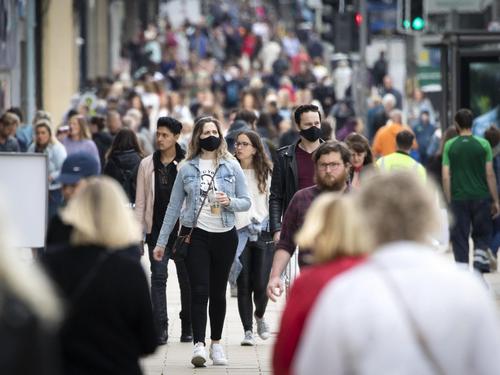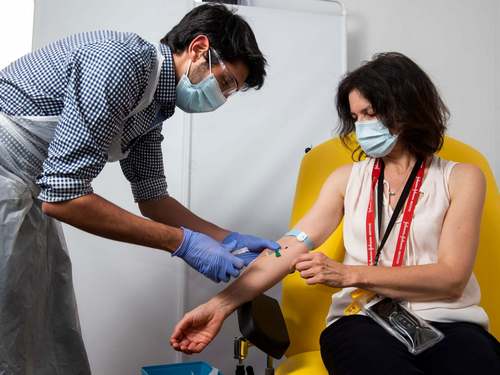The Data Evaluation and Learning for Viral Epidemics group of experts, or Delve, warned the spread of coronavirus within hospitals and between staff was a major issue that needed far better surveillance, data and action.
The Independent employs reporters around the world to bring you truly independent journalism. To support us, please consider a contribution.
At least one in 10 of all coronavirus infections at the peak of the pandemic in England was among patient-facing hospital and care home staff, according to a study.
Researchers brought together by the Royal Society also estimated one per cent of all Covid-19 cases were picked up by patients while in hospital and 6 per cent were among care home residents.

In its report, published on Monday, the group estimated at least 10 per cent of all Covid-19 infections in England were among patient-facing staff such as doctors and nurses and care home staff between 26 April and 7 June.
In one example of outbreaks at a London hospital, a review of 435 patients infected with Covid-19 between 2 March and 12 April found 66 patients, or 15 per cent, were probably or definitely infected in hospital.
The report said: “There was evidence of patient-to-patient transmission between cases in the same bay, but the likely source could not be identified for most cases and might have been staff members, other patients or visitors with unrecognised infection.
“There was also evidence of high infection rates in healthcare workers in the same hospital: a cohort of 181 healthcare workers enrolled in late March and early April found 45 per cent were antibody positive by one-month follow-up.”
Cases fell after the unnamed hospital expanded use of personal protective equipment and kept patients who were infected together.
Calling for better systems, data and coordination, the report warned: “There is no single organisation with clear oversight of hospital-related infection surveillance, monitoring and response.
“Although surveillance systems and large-scale hospital-based studies have recently been set up, there remain gaps in availability of surveillance data on hospital-acquired infections, particularly of healthcare workers (including agency staff) and in nursing homes; important questions remain unanswered, including about the impact on black, Asian and minority ethnic health and social care workers.”
Anne Johnson, professor of infectious disease epidemiology at University College London, and a member of the Delve committee said: “We now better understand the risks of Covid-19 transmission within hospital and care settings although improved data are needed.
“As in many countries, outbreaks have occurred and continue to occur, though renewed prevention efforts are now in place. Now we need to learn from our experience and use our greater understanding of how the pandemic has played out, to ensure we are better prepared to prevent and manage new outbreaks and a potential second wave, protecting everyone.”
The report called for new efforts to rapidly identify Covid-19 infections in hospital including not just patients but also staff both clinical and non-clinical as well as students and volunteers.
It added a more centralised surveillance system was needed to understand hospital outbreaks and cases linked to them with results published including case numbers and reductions over time.
The experts also called for better connected data systems across communities and care providers as well as setting minimum standards for outbreak investigations with all hospital infections linked to the existing test and trace system.



